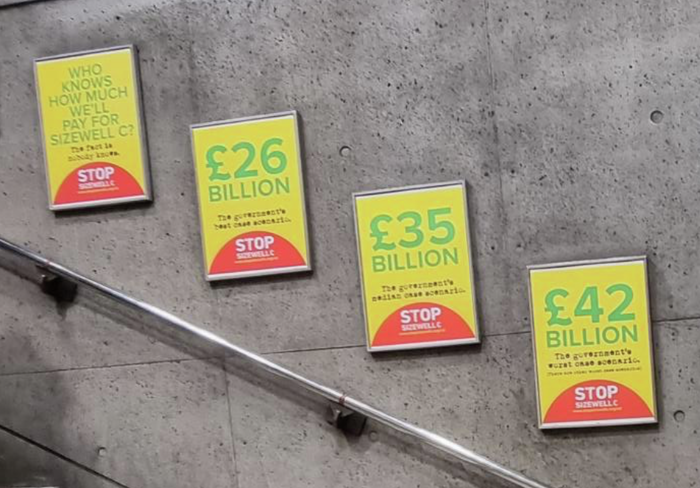After Rushdie, the left must once again defend free speech
Liberal values and radical religion are diametrically opposed. The left needs to pick a side

The attack on Salman Rushdie was so horrific in part because of how predictable it was. For a man who has lived 34 years in the shadow of a fatwa and a three million dollar bounty, the only surprise is that this didn’t happen earlier.
While there was an outpouring of sympathy and well-wishing from the British media, for Rushdie this was clearly too little, too late. The depressing truth is that most of us forgot about Rushdie’s plight. When he resurfaced in New York after his decade in hiding, he was no longer our problem. Out of sight and out of mind, it was easier to ignore the problems that forced Rushdie abroad. A survey conducted earlier this year found that 29 percent of 25-34 year-olds thought Salman Rushdie was a fish dish.
Politics moved on and left Rushdie behind. In the maelstrom of the mid-2010s, Rushdie’s plight was completely reframed. Xenophobic and racist sentiment became widespread in the face of increased immigration from a crisis-ridden Middle East, all the while social media companies cracked down on the very same resurgent far-right, sparking a new debate over free speech.
29 percent of 25-34 year-olds thought Salman Rushdie was a fish dish
The left rightly stood up to racist rhetoric, but their position on free speech has become muddied and confused.
It doesn’t help that the right monopolised free speech advocacy and reinvented themselves as the stalwart defenders of free expression even when history shows they have been anything but. On the Rushdie affair, Conservatives have had a patchy record to say the least. Norman Tebbit, former chairman of the Conservative party, infamously accused Rushdie of an “egotistical and self-opinionated attack on the religion into which he was born”. Margret Thatcher too failed to stand up for Rushdie’s free speech, drawing direct equivalence between people in her own religion “doing things which are deeply offensive to some of us” and how Rushdie’s writing had affected Muslims.
In some ways Conservative equivocation over Rushdie is hardly surprising. Social conservatives and the Islamist fundamentalists attacking Rushdie share more common ground than they would both care to admit. Critically, both believe that religion deserves some innate respect that other ideas don’t, a belief fundamentally at odds with a free and secular society.
The left has lost their way on free speech
In the 1990s and 2000s, it was left-wing voices such as Christopher Hitchens and Günter Grass who were the most vocal in defence of Rushdie. But within ten years, the left has lost their way on the free speech debate.
Fresh debate over whether restrictions on offensive speech are justified placed the left in a difficult position between the two noble goals of protecting society’s downtrodden and defending free expression. While these goals are not at all irreconcilable, the right’s decision to dogmatically defend free speech has made the left uncomfortable touching the subject.
Whether it be forcing a teacher into hiding for showing a cartoon or making cinema chains drop a film, the very same extremist forces which threaten Rushdie’s life continue to undermine free expression in the UK, even if the battle lines have been substantially redrawn.
Some liberals and leftists have regrettably become well-intentioned handmaidens for these assaults on secularism. Last year, Labour MP Naz Shah appeared to call for the implementation of blasphemy laws alongside the government’s own equally vacuous “statue law” due to the “emotional harm” caused by the depiction of the Prophet Muhammad. At Bristol University, the Students’ Union banned Charlie Hebdo magazines in the aftermath of the 2015 terrorist attack on account of it violating ‘safe space’ policies. Five years later, the Students’ Union supported a campaign to scrap a particular course in which the lecturer, Steve Greer, was accused of Islamophobia largely on the basis of doctored quotations. He was fully cleared, but the University imposed significant modifications on Greer’s course to be more “respectful”.
Amid all this, activists have mastered the use of ‘progressive’ language to broaden their coalition, even if their overarching goal is deeply regressive. Greer’s module was opposed under the guise of ‘decolonising’ the curriculum and making the learning environment more ‘inclusive’. In reality, it simply resurrected the medieval idea that religion, uniquely, is above criticism or ridicule.
The infuriating thing is that there is truth behind this white knighting – Muslims in the west are marginalised, and are targeted by a hypocritical right who are happy to stay silent about Christianity’s own problems. But the idea that Muslims need state protection to defend their faith is equally marginalising and infantilising.
The left must learn to combat racism without sacrificing freedom of speech. It is possible to fight racist rhetoric on immigration – a topic at the heart of Rushdie’s writing – or the freedom to wear religious clothing, while defending the free speech Rushdie nearly gave his life for.
Thankfully it looks like Salman Rushdie will pull through despite his horrific injuries. If there is a god, they are clearly fond of him. But we cannot continue to sleepwalk. If we do, we face a long backslide down a slippery slope.
 Arts / Plays and playing truant: Stephen Fry’s Cambridge25 April 2025
Arts / Plays and playing truant: Stephen Fry’s Cambridge25 April 2025 News / Candidates clash over Chancellorship25 April 2025
News / Candidates clash over Chancellorship25 April 2025 Music / The pipes are calling: the life of a Cambridge Organ Scholar25 April 2025
Music / The pipes are calling: the life of a Cambridge Organ Scholar25 April 2025 Comment / Cambridge builds up the housing crisis25 April 2025
Comment / Cambridge builds up the housing crisis25 April 2025 News / Cambridge Union to host Charlie Kirk and Katie Price28 April 2025
News / Cambridge Union to host Charlie Kirk and Katie Price28 April 2025







